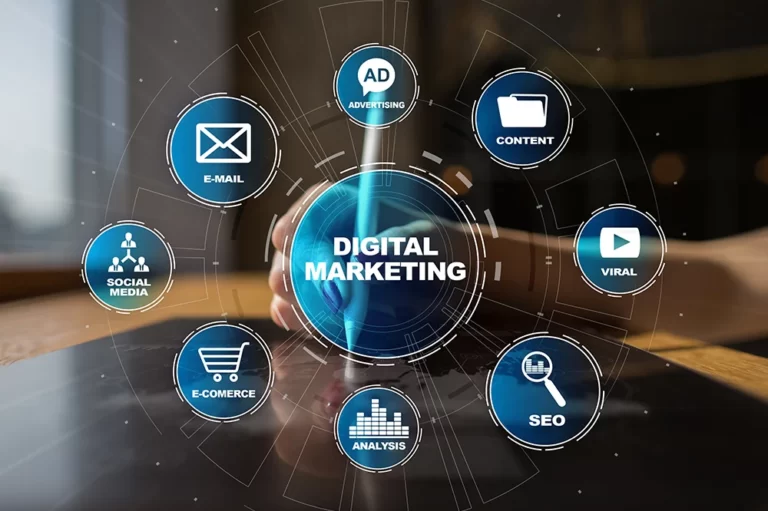Online Reputation Management for Small Businesses
“Earn a reputation and it will work for you.” – John Rockefeller. Your online reputation is as valuable as your business’s physical assets. With the power shifting into the hands of online consumers, small businesses and digital marketers can’t afford to ignore the impact of reputation management. A strong ORM strategy is critical to success, whether by controlling search engine results, engaging with audiences on social media, or navigating the complex web of online reviews.
In this comprehensive guide, we’ll explore the nuances of online reputation management and equip you with the know-how to build, protect, and elevate your digital standing. Remember, in the online world, trust is currency, and reputation is its bank.
The essence of Online Reputation Management (ORM)
Online Reputation Management (ORM) encompasses the strategies and techniques used to craft and maintain a positive online perception of a business or individual. It’s a proactive approach to safeguarding your brand’s online image in the face of an infinite online audience and the potential for an immediate and lasting connection. The digital sphere presents unique challenges and opportunities for ORM. Unlike traditional word-of-mouth, online conversations can quickly spiral out of control or soar to new heights, influencing purchase decisions and global brand identity.
That is, with the right understanding and orientation in how it works, and not succumbing to panic if this happens to you, a skilled marketer can turn a negative into a significant positive. After all, where there’s conflict, there’s always a lot of participants. People love, as strange as it may seem, to watch such things, both by participating and simply observing from the sidelines. And this attracts attention. What is attention? That’s right – the most expensive currency!
“It takes 20 years to build a reputation and 5 minutes to destroy it. You’ll approach things differently if you think about it.”
Warren Buffett
The Importance of ORM
A robust ORM initiative for small businesses is a game-changer. A positive online reputation can build credibility, attract new customers, and retain existing ones. On the other side of the coin, ignoring or mismanaging your digital reputation can have catastrophic effects on revenue and consumer trust. For digital marketers(In general, everyone! who runs any type of online business), ORM is an essential aspect of brand management. It impacts SEO, social media engagement, content strategy, and the overall digital marketing mix. With the right ORM tactics, marketers can deploy reputation as a powerful marketing tool.
Most people, whether they like it or not, pay attention to the number of followers on a company’s or individual’s account—the more, the greater the trust it generates (whether this is right or wrong is a different matter for discussion). The same goes for reviews. Yes, sometimes when receiving a review, you want to respond not in the way business ethics would dictate, but such are the laws of business. Reviews can elevate your brand to a level within a few months where you physically cannot handle all the incoming orders, or conversely, negate your years of work in one evening. There are many examples of this. The takeaway? Pay close attention to your audience, engage in pressing issues and questions, and anticipate the escalation.
“What is said behind your back is your reputation.”
Edgar Howe
Challenges in Managing Online Reputation
Before we deep-dive into strategies, it’s important to acknowledge common hurdles faced when managing an online reputation. These include:
Strategies for Effective ORM
Establishing a Strong Digital Footprint
Your digital footprint is the breadcrumb trail of your online existence. A meticulously crafted footprint can dominate search results, ensuring that you control the narrative.
Online Reviews and Feedback
Listening is the first step to any conversation. In the online world, that means actively monitoring reviews and feedback to understand customer sentiment.
It’s important to learn to take feedback with maximum calmness and to apply critical thinking. Why? Well, feedback isn’t always objective. Not everyone likes everything; one person might be happy, while another might have their mood ruined and decide to vent their negativity on you, you see? To look at things objectively means, for instance, if you said you would paint the fence green but painted it yellow, then of course you are in the wrong! Because you didn’t deliver what you promised. But sometimes, you might paint the fence yellow, and it’s just not the shade the client wanted—they might just be seeking attention. Let’s be critical and acknowledge that this is often the problem. Argue? No, just choose not to work with them. Make conclusions based on feedback such that your service is better than the competitors’
“Those who can explain gracefully to people what they already know are the ones who are quickest to gain the reputation of being intelligent.”
Maria von Ebner-Eschenbach
Method Examples
- Set up Google Alerts and social listening feeds to track mentions.
- Craft personalized and empathetic responses to all reviews, especially negative ones.
- Implement review management systems to streamline the process.
Social Media for Engagement and Brand Building
Social media is a goldmine for building relationships and brand advocacy. The number of social media users is only growing, and now if your company doesn’t have a social account, it’s trusted less. If you have few followers, you’re less noticed… You might offer super high-quality services, but if you’re not on social networks, if your stories and thoughts aren’t shared, you’re trusted less and it’s harder to gain clients. Such is the reality.
Simple steps of presence:
- Regularly engage with followers by responding to comments and messages.
- Create shareable content that embodies your brand’s narrative.
- Build a community around your brand and encourage positive user-generated content.
SEO
Investing in SEO strategically pushes the results you want to the top and buries the ones you don’t want to see. SEO might seem simple at first glance, but that’s only initially… My advice is simple: for SEO promotion, ONLY turn to professional companies. SEO is all about nuances that need constant monitoring. You can’t just set it up once and forget it, especially after Google updates!
Insights to Apply:
- Incorporate target keywords in your content and meta descriptions.
- Encourage linking to and from reputable sites.
- Optimize your site for speed and mobile to enhance user experience and search ranking.
Creating and Promoting Positive Content
Proactively publishing and promoting positive content can help dilute the impact of any negative mentions. Experiment with your content, and observe reactions and engagement. For this purpose, you can use tools like Google Analytics (choose according to your preference and convenience) besides the obvious visual indicators like likes and comments. Demonstrating your expertise, addressing audience questions, and pictures with jokes that gather many comments are very popular. Experiment, but don’t overdo it.
Effective Strategies:
- Develop a content calendar that includes articles, press releases, and case studies.
- Cross-promote content across platforms to reach a wider audience.
- Leverage influencers to spread positive messages about your brand.
Examples of Tools and Technologies for Simplifying ORM Tasks
Fortunately, a range of tools exist to streamline the ORM process, from sentiment analysis software to Social Media Management Systems (SMMS). Regardless of having cool tools and technologies, my recommendation is to check and monitor everything manually until AI reaches the flexible level required to fully address this issue. Sometimes, an automated system response or bot can further irritate a customer and amplify a negative review.
Recommended Tools:
- Hootsuite: A social media management platform for scheduling posts and tracking online conversations.
- Reputology: A review management system that collates and analyzes feedback from multiple platforms.
- SEMrush: A suite of SEO tools that aids in keyword research and backlink auditing.
Conclusion: The Future of ORM and Key Takeaways
The digital domain is constantly evolving, and so must your ORM strategies. Be agile, be responsive, and be proactive. As mentioned earlier, be flexible, friendly, and firm at the same time. Despite the commonly held belief that the customer is always right, I believe this is not the case. People can make mistakes and sometimes look for a place to vent their frustrations; it’s true, whether you like it or not. Learn to delicately handle this by turning a negative into a positive, remembering that many people (potential customers) are watching from the sidelines and drawing their own conclusions. Do your job well, don’t promise what you can’t deliver, and be very competent; then, no review will scare you, and you’ll see negative feedback as a motivation to become better!
Key Takeaways:
- Prioritize your digital footprint to control the conversation.
- Stay on top of reviews and engage with your audience.
- Proactively push positive content that reflects your brand values.
- Use the right tools to simplify the process and monitor your efforts.
Sharing is caring. If you found this guide helpful, share it with your network and seek further advice on tailored ORM strategies. In the war for attention, reputation is your shield and your sword. Make sure yours is sharp and strong.







